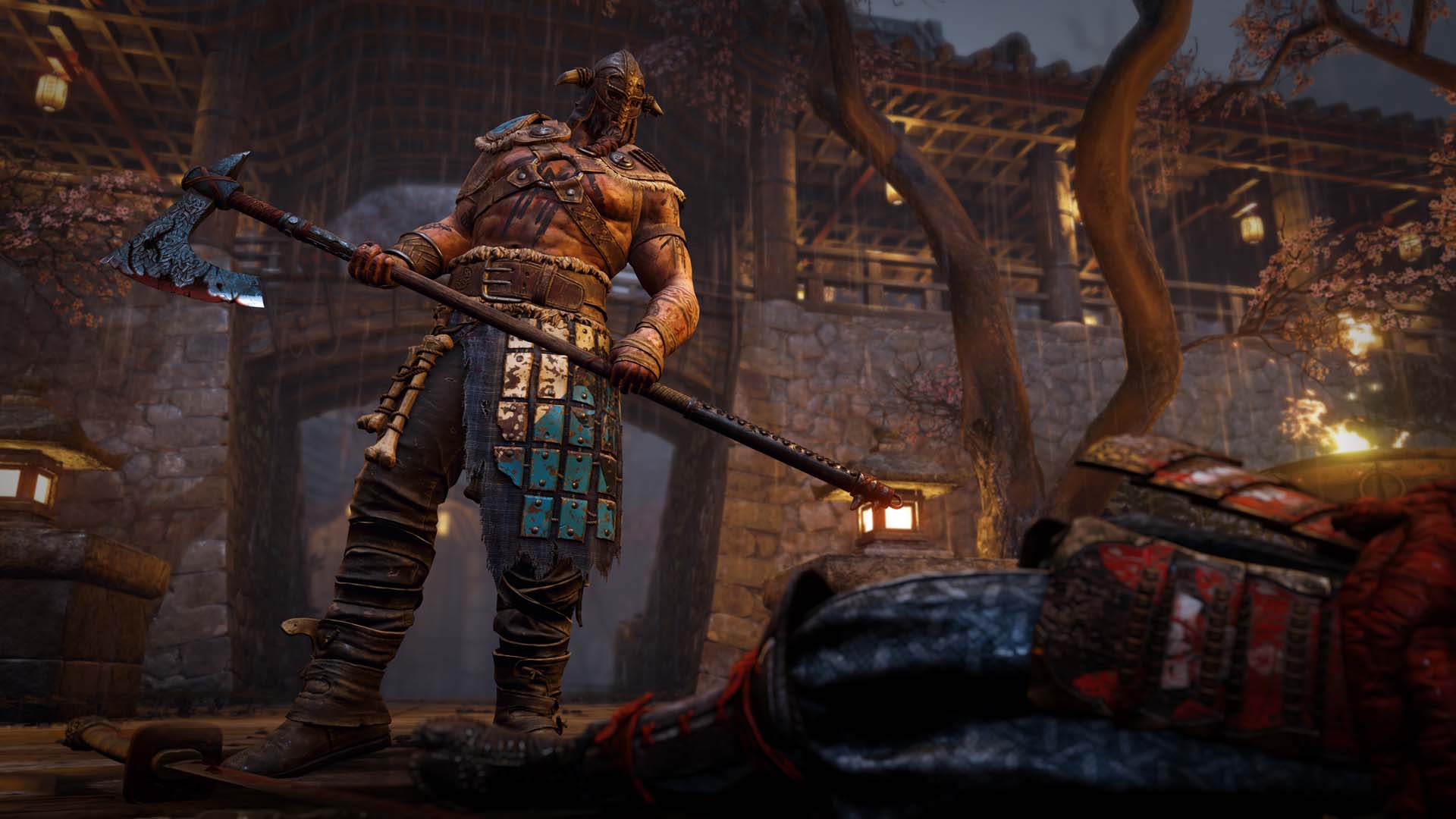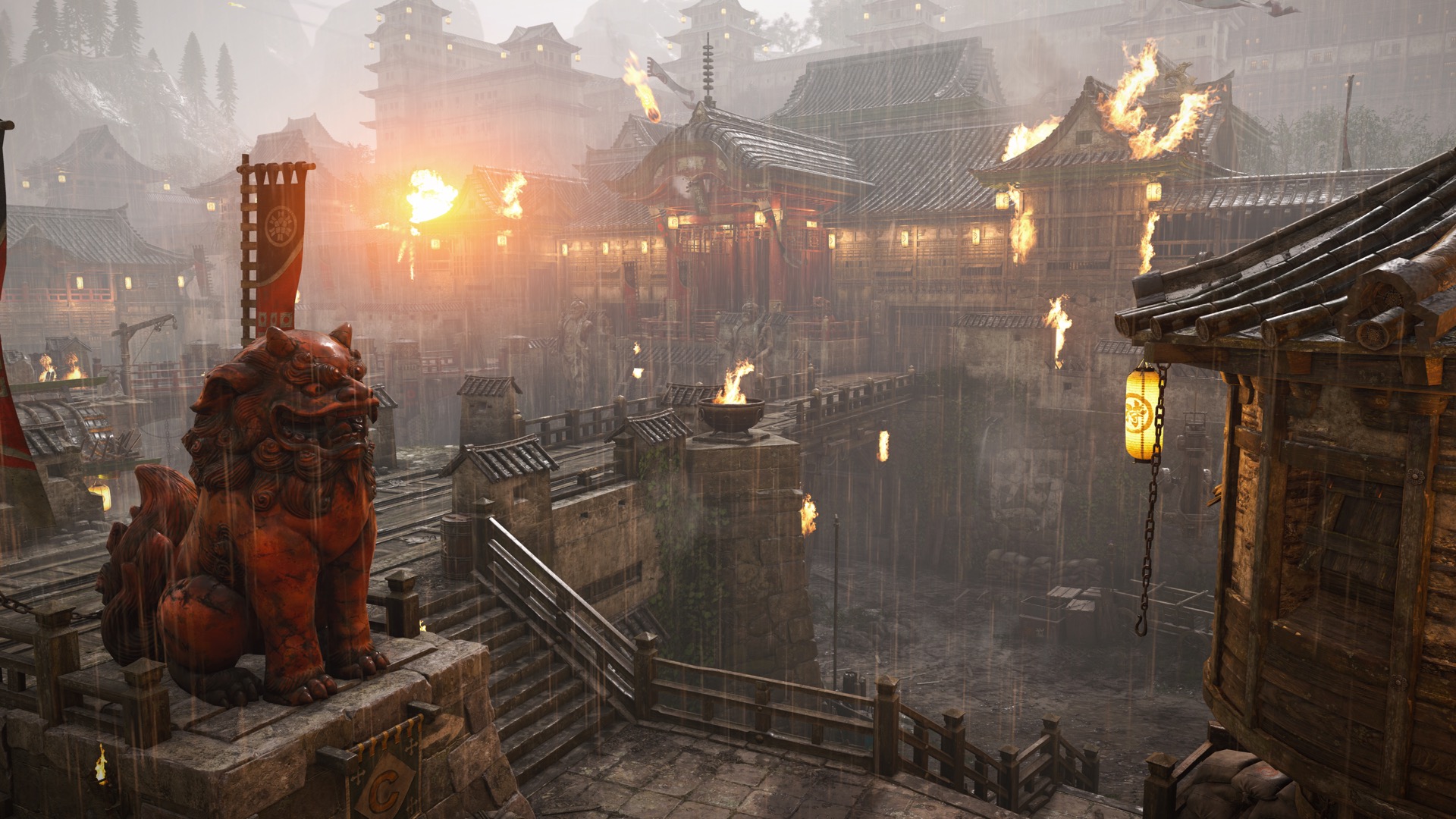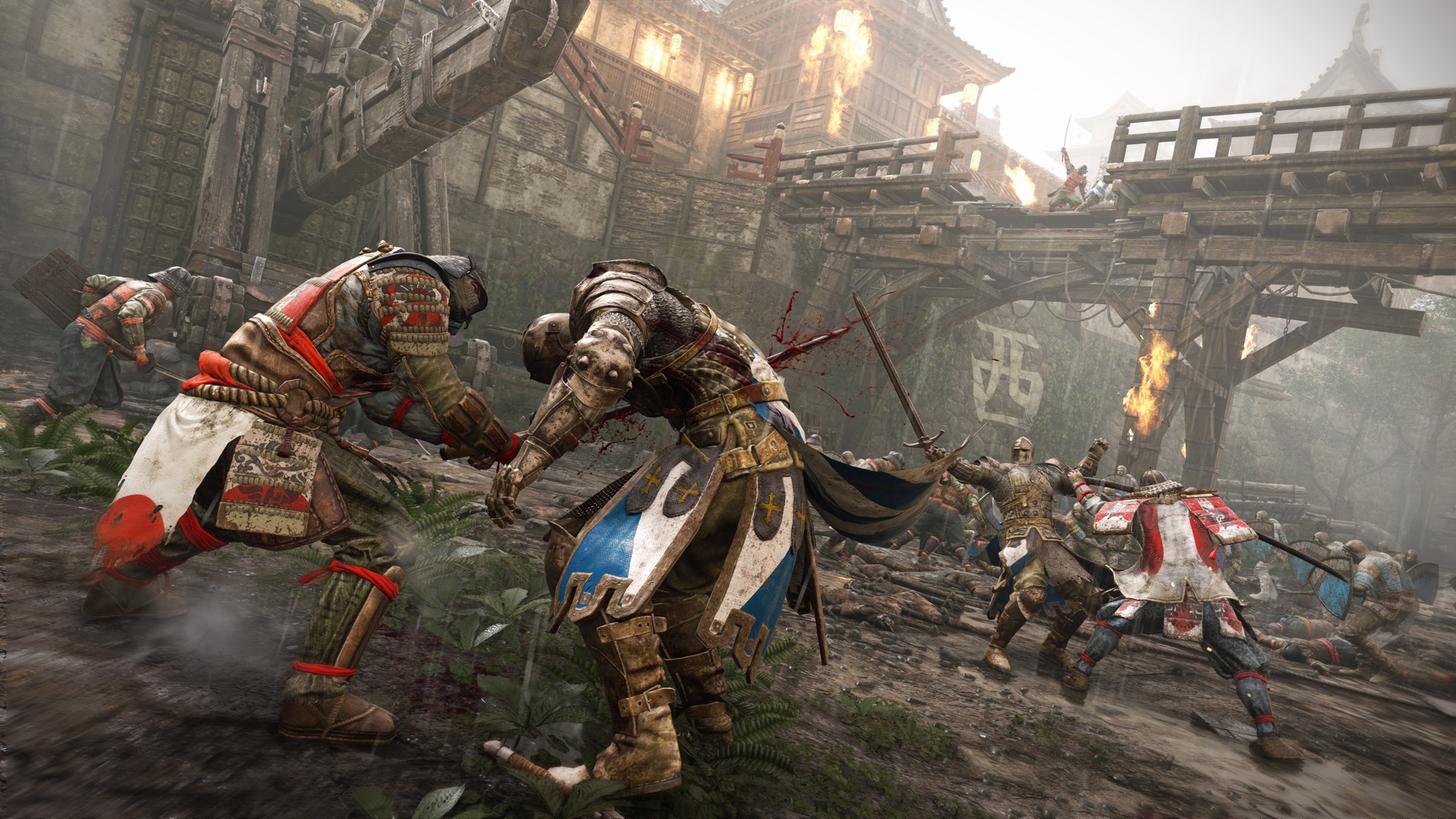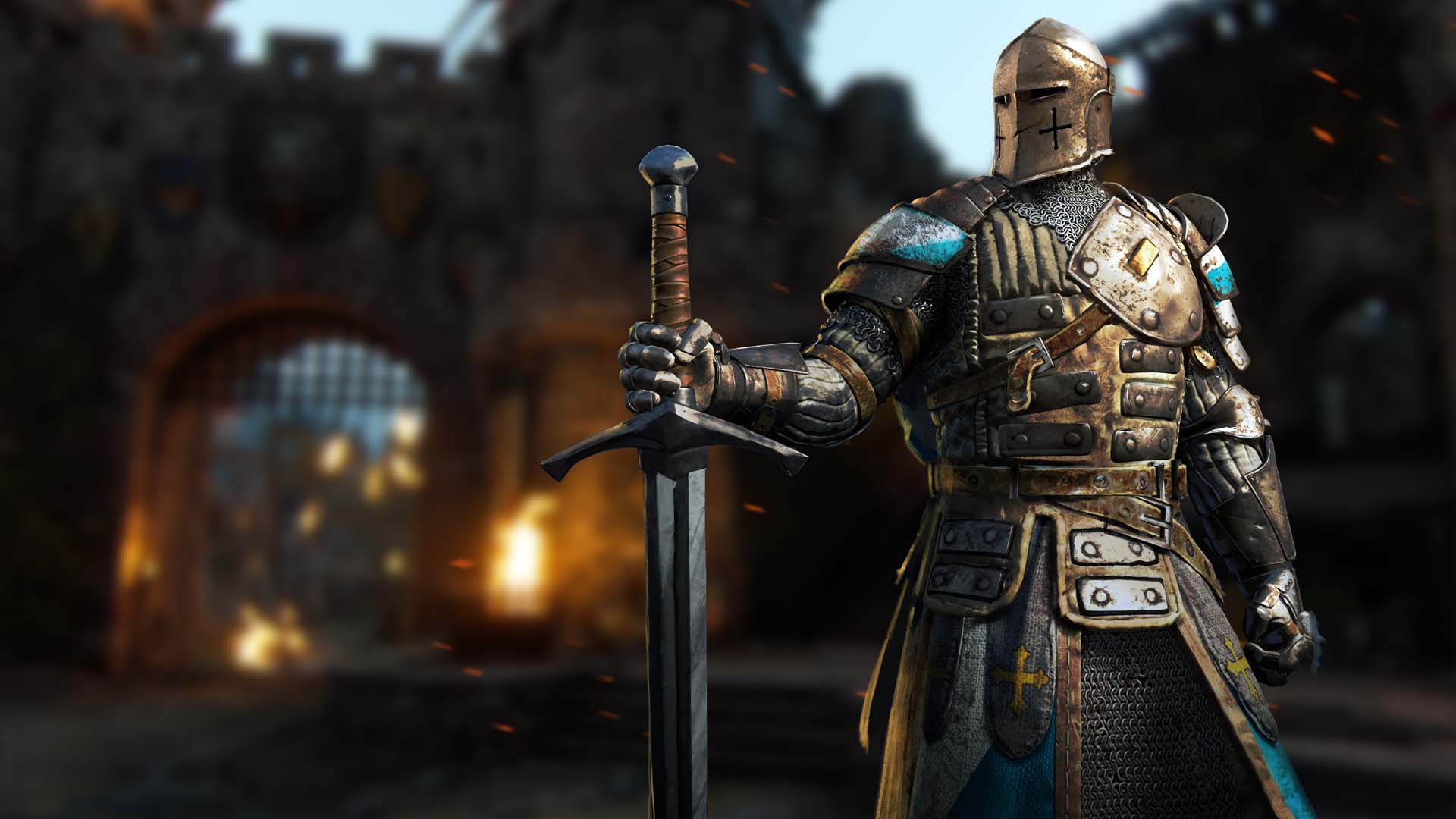Platforms:
Xbox One, PS4, PC
Released:
February 14, 2017
Publisher:
Ubisoft
Developer:
Ubisoft Montreal
For Honor has a premise that speaks to me and engages me instantly. Vikings vs. Knights vs. Samurai in an epic showdown with intense, violent hand-to-hand combat? Where do I sign up? What the game does so well though is not just its clever (if not a little bit silly) concept, but instead the incredibly intricate combat system that is the glue holding the experience together. The campaign only really serves as an appetizer for the main course that is multiplayer, which has more than enough meat to bring value to this tasty, brutal and addictive experience – when it works, that is. But more on that later.

The campaign itself makes an attempt at connecting a story which pits factions against themselves before branching out to battle each other for territory and, well, for honour. The many seemingly random plot threads dangle tenuously as you take the role of key warriors from each group, with campy dialogue to boot. At least the choreography of the fighting in cut-scenes is pretty fun to watch in that throwaway action movie sort of way, but I found myself zoning out during the more dialogue heavy scenes.
I still very much liked the single player in For Honor, don’t get me wrong; it teaches you the basics of combat along with some advanced techniques, allows you to experiment with different characters, practice against AI and it looks damn pretty. Missions are broken up and are short enough that you’re never doing the same objectives for too long, and there are some memorable boss encounters that really did challenge me to use the skills that I’d learned. There are some cheeky hidden collectibles for completionists out there as well, but I didn’t really feel inspired to search for these.
Missions can be played with a friend via co-op, which adds some longevity if you want to go back and try them on a harder difficulty. Realistic difficulty provides the most challenge, as you are unable to regenerate health through the entire mission, but also takes away the visual cues that The Art of Battle normally provides, making every duel incredibly intense but providing good rewards if you’ve got the gusto.
“… it’s amazing how quickly things get complicated, yet somehow never feels too overwhelming.”
The Art of Battle itself is one of the most well thought-out combat systems ever created. Using a mechanic that initially seems simple where you must move the right stick in either an up, left or right position to block and attack, you have to watch where your opponent is swinging from to be able to best counter, wear down their stamina and make your move. Then there are light attacks, heavy attacks, combos, blocks, parries, throws, unblockable attacks, multi-directional blocks, dodging, taking on multiple foes at once, attacks from above and throwing enemies off of ledges… it’s amazing how quickly things get complicated, yet somehow never feels too overwhelming.
The basic training in For Honor will show you the ropes but it’s the advanced training that you will need to go through if you want to be as effective as possible. Playing online against humans, there is a clear divide between those who know all the tricks and those who don’t, to the point where you’ll find it very frustrating as a new player if you haven’t taken the time to teach yourself some of the more complex techniques.
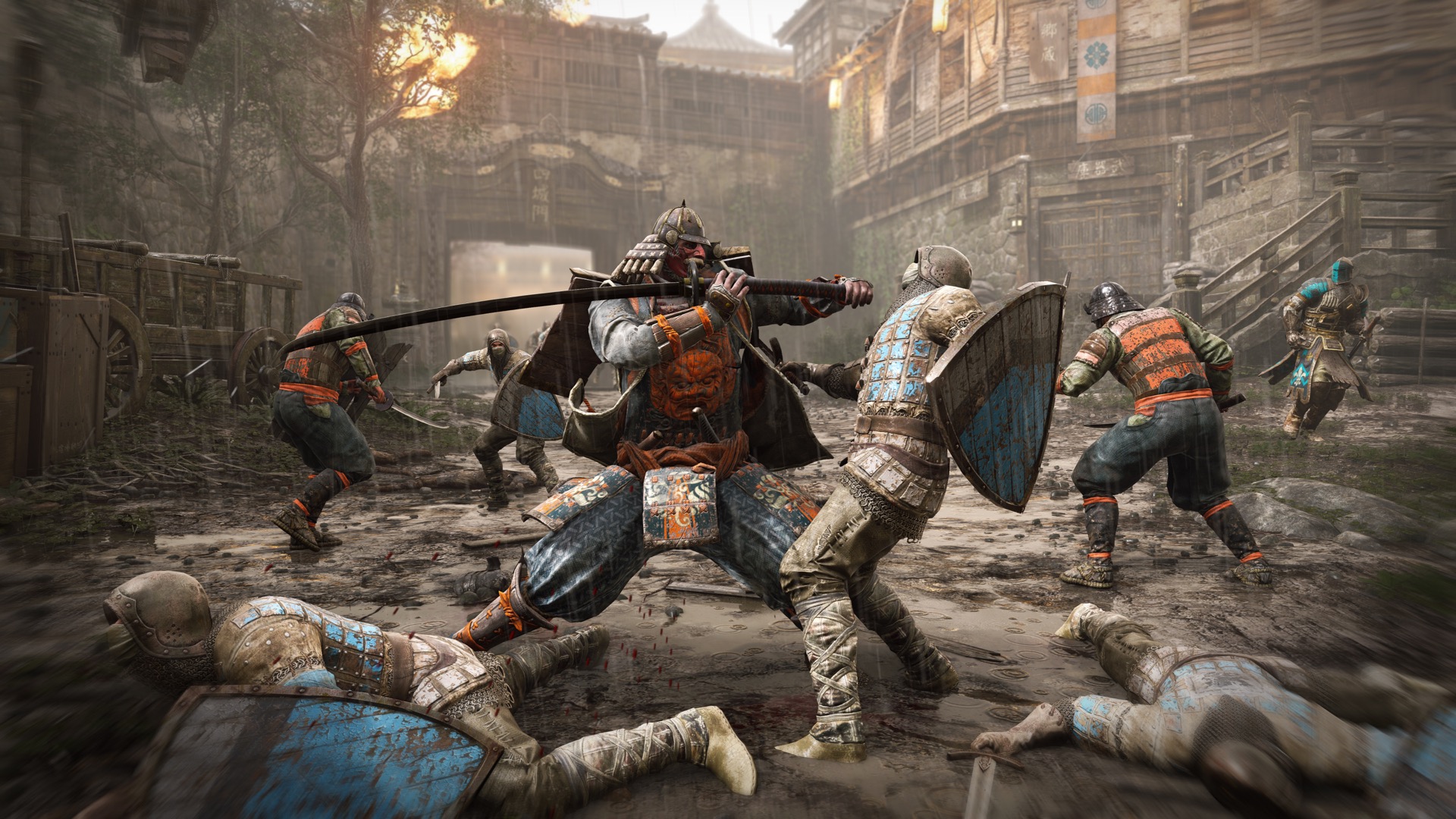
Once you learn though, not only will it give you leverage when you use your character of choice, but you’ll know what to look out for in your opponents. Certain stances and other visual indicators give you just enough time to react accordingly with the appropriate counter measure, and this is literally the difference between defeat and victory in the more intense duels.
There are twelve different characters across the three factions; the Vanguard class, a good starting point for new players and generally all-rounders; the Heavy class, who have strong attacks and defense but are generally slower; the Assassin class, who deal low damage but are very quick and difficult to lay a solid strike on, and finally the Hybrid class, which are combinations of strong and fast but are easily the most difficult to master, given their mixture of abilities.
Each class has strengths and weaknesses, of course, so it’s your job to figure out which scenarios are going to best benefit you against the range of foes. Is it best to defend and parry their attacks, leaving them vulnerable for a counter? Should you move in, get some shots in and then quickly back away? How do you best take advantage? While a couple of classes seem overpowered at the moment (I’m looking at you, Orochi), generally there isn’t anyone that has a clear advantage, providing you have the right skills.
“…getting a kill in this game is far more satisfying than any kill I’ve ever had, as it feels so well-earned.”
Multiplayer is definitely where you’ll be spending most of your time, so it’s a good thing that the games flagship game mode, Dominion, is awesome. A combination of catching and defending zones while racking up kills against fodder soldiers and other players, it best captures what For Honor is all about, requiring skill and communication with your teammates to be effective at owning the battlefield.
Human players in multiplayer games have always added a different layer of unpredictability that you don’t get from the AI, so tactically speaking, playing online is a very different experience to battling offline. This makes facing off against worthy opponents all the more satisfying, especially when you come out on top of a duel as the victor, finishing them off with a violent and brutal execution. I’d say that getting a kill in this game is far more satisfying than any kill I’ve ever had in another online experience, as it feels so well-earned.

Things do become problematic in 2-on-1 or even worse, 3-on-1 situations, where it feels almost impossible to survive, let alone claim the victory. Being outnumbered can become a common occurrence, especially if you are playing with folk who don’t use their headsets and you’re up against a coordinated team. There are other more standard deathmatch type scenarios to switch things up and prevent this, but when the odds are stacked against you it can be difficult to stay motivated to keep playing, especially when the 1-on-1 duels are what you’ll be craving.
The biggest problem For Honor has right now is the range of connection problems when trying to find a stable game. Ubisoft has opted with a peer-to-peer networking system, which causes around 50% of my matches to either lose connection before they begin, drop out and throw you back to the menu screen half-way through a match, or simply replace most of the players with AI controlled bots. It’s at a point almost two weeks after release where my mates and I actually cheer when a match manages to connect up properly and last the distance, which for a fully-priced final release is pretty bloody poor.
Positive:
- Fantastic combat
- Great setting
- Addictive gameplay
- Simple, but complex!
Negative:
- Campaign is so-so
- Connection issues
For Honor is a compelling, exciting and intricate hand-to-hand combat experience that is let down by anger-inducing connectivity issues. I actually love the concept and the gameplay at its core so much that it makes it all the more frustrating when a match drops out midway through. It’s still early days in terms of release, so there is time to fix these problems; once that happens, players will be allowed to experience the finesse of one of the best fighting systems available. When For Honor is firing all cylinders, it’s a fantastic and unforgettable game. We just need it to be at that level consistently before it can be considered a slam dunk.


